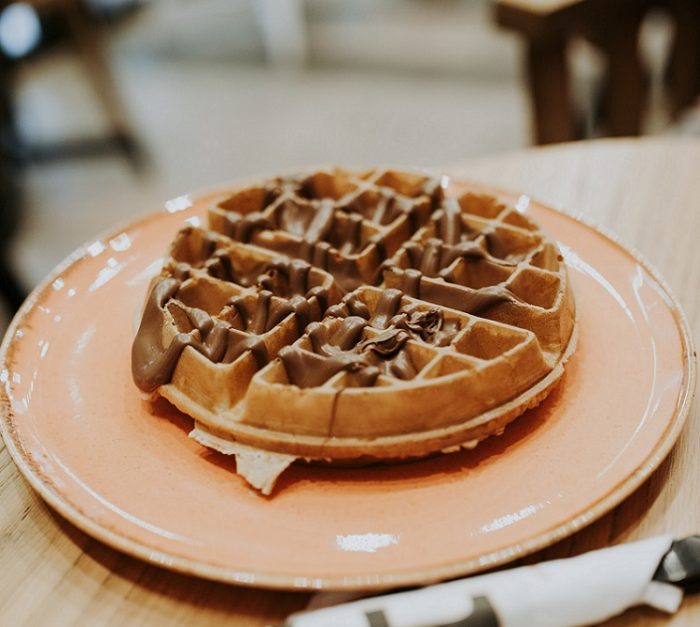Sometime in my 20s, I heard a quote by J. M. Barrie that has stuck with me ever since.
In a rare and special way, this quote has informed not only my moral compass, but my parenting as well. This is what it says:
“Always try to be a little kinder than is necessary.”
Yesterday, my almost-teenager was raging. There wasn’t a thing I said which wasn’t met with pushback, mockery, or outrage. No action I took was good enough, no modicum of respect from me to him appreciated. With his younger siblings he was a tyrant, ruling over their every action with exacting criticism and judgement.
As a parent who strives for compassionate empathy, I actively seek out both scientific and spiritual resources for understanding the developmental challenges of youth. So as I witnessed both his outbursts and my visceral reactions, I intellectually understood his behavior to be not only normal, but likely originating from an uncontrollable angst at trying to figure out his place in the world.
But I’m also human, and so my own conditioning and wounds and reactions sometimes (usually) get in the way. Though I tried my damnedest, and likely so did my son, our so-called conversations seemed doomed to perpetually devolve into yelling matches.
He was sent to bed early both because I was exhausted and because I figured he probably needed some rest and rejuvenation, too. I fell asleep feeling pretty rotten.
Sleep, the great palate cleanser, delivered us this morning to a new day. And though our collective cortisol baseline was undeniably higher than normal, it felt as though the dust had settled and we were on-track for a more joyful, relational experience.
The little kids played well and creatively, my oldest slept in, and I had time for some coffee and quiet. In my experience, our best days start like this—with each of us getting what he or she needs.
By the time he had woken up, the rest of us had cooked and eaten breakfast. Often, this isn’t a huge deal. “You snooze you lose,” I told him jovially, “but there’s plenty of food in the kitchen. Make yourself something.” Usually, that’s the end of it, but I could tell that on this particular day something was off.
A large part of me wanted to defend my quiet morning, for him to make his own breakfast since he’d decided to sleep in, and for us to get on with our day. I was still holding shreds of resentment from the day before, feeling underappreciated and disrespected. I saw this, but the stubborn toddler within didn’t want to rise above it.
Goodness won out (as it always should) and I rose from my seat to cook for him. Behind his adolescent eyes I saw something, and it shook me out of my self-righteous inner monologue. Behind the angst and intensity of being 12, I saw his yearning to be loved, held, and nurtured. To know that, even when he pushes back, he’s cared for, and that he’s not on this wild ride of becoming alone.
As I walked into the kitchen, I found him staring at the stove. “What would you like for breakfast? I’ll make you something.” He shot back his own defensiveness. His intensity came out as fists on the table, shoulders up to his ears. He tried to joke, to lighten the mood, to beg for a life raft, but it just came out as anger.
I was triggered. I was fearful of another day like yesterday. I responded with a voice a little louder than I wanted it to be, probably in an effort to reassure myself that my boundaries were worth upholding. I met his intensity with my own—no good ever comes of that.
But instead of continuing down that road, I stopped. I took a deep breath. I asked myself what I needed and what I thought he needed. I asked him what he needed. He didn’t know; that was clear.
Through the anger he decided on waffles. I started the stove.
But what he really needed, more than anything, was for me to show him, both through action and instruction, how to deal with these big feelings experienced with a unique intensity by adolescents.
So I gave him two options. I told him he could read with me in the kitchen or he could take a shower. I would cook him breakfast, and he could nurture himself. He begrudgingly opted for a shower.
As I cooked, I found myself constantly bombarded by “this is good enough” thoughts aimed at satiating my stubborn resentment at having to kill my ego in the interest of goodness. At every turn, when defensiveness reared its head, I quieted it with compassion.
I reached the point of dressing the waffles and he was still in the shower. I wanted to plate them and leave them on the table, but I stopped and asked myself, “What’s the kindest possible way for me to do this?”
I turned the oven to “Keep Warm” and popped my head in the door of the bathroom to ask if he wanted peanut butter, syrup, brown sugar, and butter. He answered with a characteristically complicated request, which I pushed myself to genuinely accept, and to answer with, “Yep, no problem.” More than saying it, I wanted to mean it. I told him his food was almost ready.
“Thanks” he said from the shower, and I detected the dawn of softness upon him. He was coming down. Thank heavens.
As I finished preparing his breakfast and poured myself another cup of coffee, I felt my own stress subsiding. I felt the day before melting into the veritable treasure chest of missed opportunities and things I wish I’d done differently.
He came out of the shower clean, both physically and emotionally. I could tell. And then we sat at the table and ate and talked. With each bite, the divide between us filled in a little more. Softness returned amidst mouthfuls of buttery waffles, and I realized the best option is always to be a little kinder than necessary.
~







Read 16 comments and reply